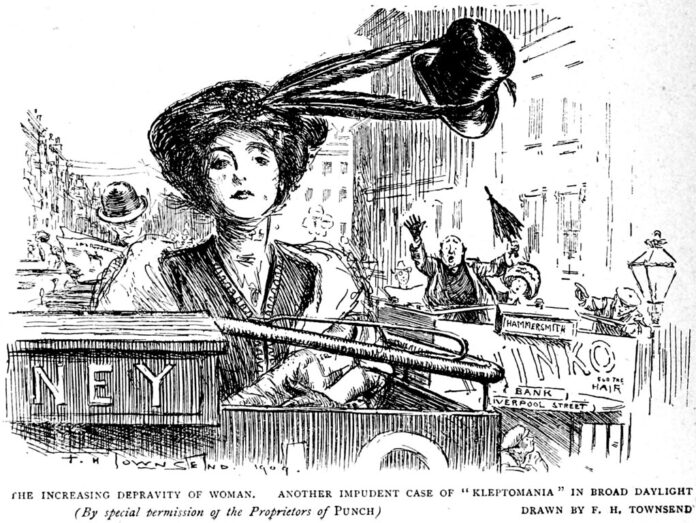Kleptomania is a mental health disorder that causes people to steal things they don’t need. While it is not as well-known as other mental health disorders, kleptomania is a serious condition that can negatively affect an individual’s life. This blog post will discuss nine little known facts about kleptomania. We hope this information will help educate people about this condition and increase awareness of kleptomania and other mental health disorders.
Let’s take a look at these facts.
Kleptomania is Treated with Antidepressants
The most common treatment for kleptomania is the use of antidepressants. These medications can help to control the urges associated with kleptomania and can also help to reduce any anxiety or depression that may be present. Hospitalization is sometimes necessary if the person cannot control their urges or if they are a danger to themselves or others.
Kleptomania Often Starts in Adolescence
Kleptomania often begins in adolescence, with onset occurring between 11 and 18. It is more common in females than males, and there is often a family history of the disorder. Kleptomania tends to run in families, so the condition may have a genetic component. Healthcare professionals can help patients develop healthy coping mechanisms and provide support during difficult times.
Kleptomania is a severe mental illness that can profoundly affect an individual’s life, but with treatment, it is possible to live a whole and productive life. AskApollo is a health library you can check on to get the details about such diseases and treatment options available.
Kleptomania is Like Obsessive-Compulsive Disorder
Kleptomania is a mental disorder where people feel the urge to steal, even though they may not need or want the items they take. People with kleptomania often steal small, inexpensive things that are easy to conceal. The disorder is more common in women than men and typically begins during adolescence or young adulthood. While there is no cure for kleptomania, treatment can help reduce the urge to steal and prevent future thefts.
Cognitive-Behavioral Therapy is Effective
Cognitive-behavioral therapy has been shown to be effective in treating kleptomania. The goal of treatment is to help the individual to develop new coping skills and strategies to deal with urges. Going to a hospital is crucial if the symptoms of the disease tend to worsen. Some people with kleptomania may also benefit from medication. Medications that are helpful include antidepressants, mood stabilizers, and anti-anxiety medications.
If you or someone you know has kleptomania, there is help available. Kleptomania is a treatable condition, and with proper treatment, most people can control their urges and live normal, productive lives.
People with kleptomania are Compulsive Hoarders
One of the lesser-known facts about kleptomania is that many sufferers are also compulsive hoarders. This means that they are not only compelled to steal, but they also have a strong urge to keep everything they steal. As a result, their homes can become cluttered and crammed with stolen items, making it difficult for them to function normally on a day-to-day basis.
Kleptomania was known as a Symptom of Hysteria
Kleptomania was once known as a symptom of hysteria. It was thought to be a disorder that only affected women. Hospital and healthcare professionals began to take the condition more seriously when they realized that it could affect anyone, regardless of gender. Today, kleptomania is still largely misunderstood. Many people think of it as a crime when it is a mental disorder.
Kleptomania and Pyromania Coexist in the Same Person
Pyromania and kleptomania often co-occur. People with pyromania are usually also kleptomaniacs. About 50% of people with pyromania also have kleptomania. The major reason is that impulsive behaviors cause both disorders.
Kleptomania is More Common in Females
One of the significant differences between males and females with kleptomania is that women tend to shoplift smaller, less expensive items more often than men. Women also have a higher chance of being diagnosed with kleptomania than men.
Sense of Shame is a Major Symptom of Kleptomania
Kleptomaniacs often have a strong sense of shame and guilt about their disorder. They may go to great lengths to hide their stealing from family, friends, and co-workers. Many people with kleptomania can hold down jobs and maintain healthy relationships. But the disorder can take a toll on their personal lives. Kleptomaniacs may feel like they’re leading a double life, which can be exhausting and stressful.
The Bottom Line
Kleptomania is a serious mental disorder that can have devastating consequences. If you or someone you know is struggling with kleptomania, it’s important to seek professional help. Treatment typically involves therapy and medication. With treatment, people with kleptomania can learn to manage their urges and live healthy, productive lives. We hope that this article has been helpful in providing the necessary information to you.
Apart from this, if you are interested to know more about Best Valentine’s Gifts for Everybody then visit our Lifestyle category







